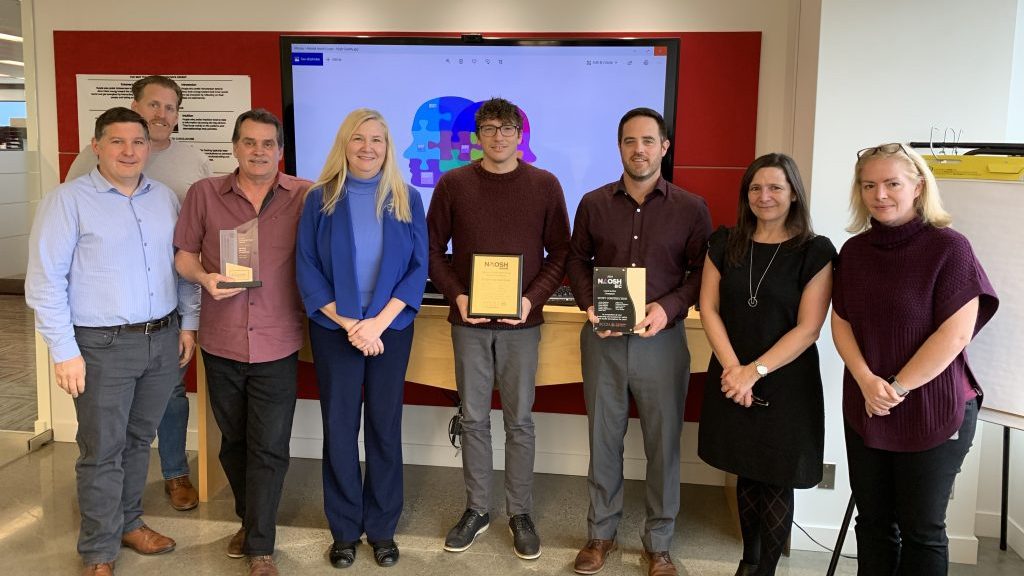Earlier this month (January), the Vancouver Regional Construction Association (VRCA) held a well-attended two-day workshop called Mental Health First Aid.
Like first aid for a physical injury, mental health first aid (MHFA) gives the sufferer immediate help until the crisis is over, or until he or she can get professional treatment.
The workshop was delivered by Quentin Steen, a certified MHFA instructor with the Mental Health Commission of Canada.
“The course doesn’t train people to diagnose mental illness or to be a therapist or counsellor,” says Steen. “It provides the first-aider with actions to guide a person in need to appropriate professional help when a problem first arises. We know the sooner a person with a mental health problem gets help, the better their chances of recovery.”
Steen says MHFA dispels common myths around mental health problems and reduces the stigma around mental illness.
“Estimates suggest that more than one-half of the people with a mental health problem will never seek treatment,” he says.
MHFA can not only help the sufferer by preventing a temporary problem from turning into something more serious, it also benefits employers and society at large, because it increases productivity, reduces absenteeism and helps to bring down the cost of benefits.
Steen says mental health is the new frontier of workplace safety.
“One of the most common mental health problems in construction is substance-related disorders,” he says. “Often they are connected to other mental health problems, such as depression, or mood-related disorders, such as anxiety.”
Steen says employers are beginning to pay closer attention to mental health in the workplace.
“In my experience, close to one in three Canadians will experience a mental health problem in any given year, which makes it a pandemic,” he says.
Steen says construction is well advanced in physical safety, but less so in mental safety.
Persistent absence from work, which could be a symptom of a mental health problem, is often regarded with suspicion.
“But malingering rates in Canada are less than 15 per cent,” he says.
Interest in and attention to mental health in the construction industry is spreading.
The VRCA workshop was held Jan. 20 to 21.
In 2019, at the suggestion of VRCA, the BC Construction Safety Alliance (BCCSA) put on Mental Health and the Construction Industry.
BCCSA spokesman Lui Garcea says the Vancouver session was so well attended that the association decided to make mental health its 2019 regional outreach event topic.
One of the speakers was Tod Maffin, president of engageQ digital Inc., a Western Canada social engagement agency.
Maffin’s presentation dealt with his own mental health struggles.
“Many mental health problems are the result of feelings of isolation and lack of support within an organization,” he said. “Job shadowing and mentoring help new employees feel like they belong in an organization.”
Another Mental Health and the Construction Industry speaker was Donna Grant, marketing and proposal manager of Scott Construction Group, and co-chair of its mental health committee.
The committee puts on monthly lunch-and-learn session that last one hour – 45 minutes of presentation and 15 minutes of questions.
Grant says the committee, which currently has 10 voluntary members, meets four times per year to plan the next quarter’s subjects for discussion. A recent session, for example, dealt with financial stress.
“We get an average of 20-25 attendees in the boardroom in our Burnaby headquarters, plus another 10 or so who watch by video connection,” she says. “That’s out of a total of 94 Scott employees in B.C., Alberta and Ontario.”
Grant says Scott is probably the first construction company in B.C. to have a mental health committee, although other companies in the industry have followed suit.
“Mental illness in the construction industry is a crisis,” she says. “Suicide is the number-two cause of death for men aged 19-54 in Canadian construction [cancer is number-one]. And one in four fentanyl deaths in the Lower Mainland occurs to construction workers.”
Grant says a mental illness is not a permanent disability.
“Like a physical injury, it needs to be diagnosed, treated and recovered from,” she said. “It doesn’t have to be something you’re stuck with for the rest of your life.”
Scott says there is a serious labour shortage in construction and it’s only going to get worse.
“We need to make construction an attractive place to work, a safe, happy, healthy place, and attention to mental health is part of that,” she said.
Fortunately, there are free and affordable mental health resources available for every age.
A few examples:
- Canadian Mental Health Association — www.cmha.ca
- Not Myself Today — www.notmyselftoday.ca
- Need2 Suicide Education & Support — www.need2.ca
- Canadian Men’s Health Foundation — www.menshealthfoundation.ca











Recent Comments